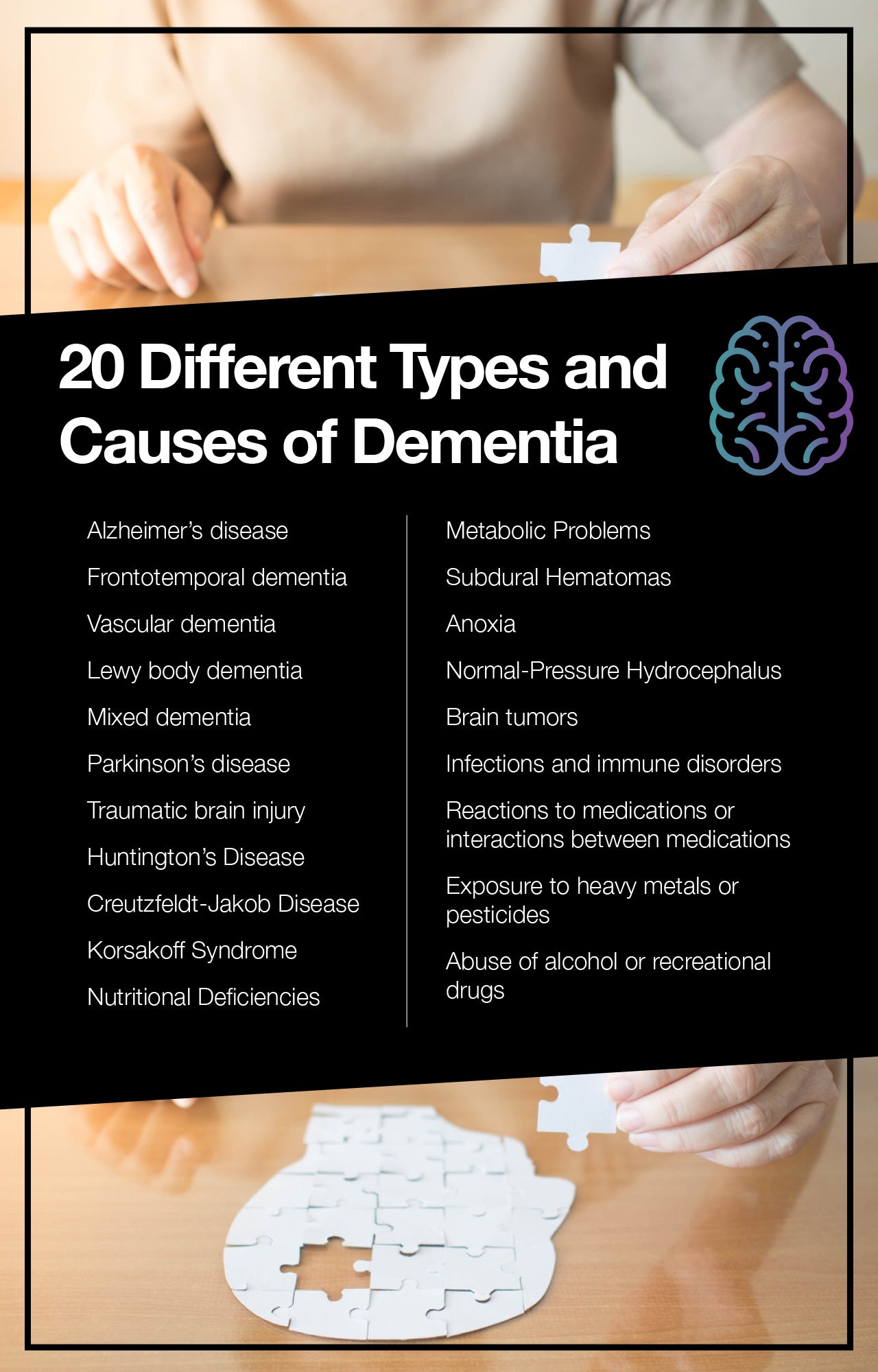What Current Research Tells Us About Dementia: An Overview
 By: by Amino Science
By: by Amino Science

According to the American Association of Retired Persons (AARP), 10,000 baby boomers turn 65 every single day, a statistic that's predicted to remain true into the 2030s. That means approximately seven baby boomers hit the age of retirement every minute. As this large segment of the population grows older, finding effective ways to address age-related conditions such as dementia has become an urgent public health priority.
The term dementia does not refer to one specific disease, but instead to a collection of symptoms that adversely impact memory, cognition, and social abilities in ways that interfere with the activities of daily life. Memory problems are the primary symptom associated with this umbrella term, however, forgetfulness and difficulty with recall can arise from a variety of underlying conditions. Memory loss alone does not qualify someone for a diagnosis of dementia.
Recognizing Key Symptoms of Dementia
As people age, it’s natural to become a little more forgetful as brain cells die off. And while the risk of dementia does increase, most significantly, after the age of 65, dementia is not a normal part of the aging process. It's also possible for younger people to develop dementia.
When individuals of any age begin to exhibit multiple behaviors categorized as dementia symptoms, it’s a good idea to consult a doctor.
Depending on the type of dementia, symptoms vary somewhat. However, there are certain common signs to watch for that can be divided into two general categories: cognitive changes and personality changes.
Some cognitive changes that can be indicative of dementia include:
- Memory loss
- Difficulty communicating, particularly with finding the right words
- Impaired problem-solving skills
- Decreased ability to carry out complex tasks
- Frustration when trying to plan or organize
- Issues with coordination and motor functions
- Confusion and disorientation
Personality changes can be trickier to perceive. Typically, a spouse or close family members will be the ones to identify signs of dementia in this category, such as:
- Depression
- Anxiety
- Paranoia
- Agitation
The psychological changes that affect personality can also cause hallucinations and strange, potentially upsetting behaviors like aggression and inappropriate sexual advances.

If you or a loved one begins to exhibit lapses in short-term memory or other indications of dementia, you should schedule an appointment with a medical professional sooner rather than later. Some causes of dementia can be resolved, completing eliminating the resulting symptoms. And even if the underlying cause of dementia has no cure—as is the case for the most common cause of dementia, Alzheimer's disease—studies show early treatment can significantly improve outcomes.
Categorizing the Different Types of Dementia
Different causes of dementia result in a multitude of presentations of the condition. Though all types of dementia involve damage to the nerve cells of the brain, this damage can occur in several distinct areas. The progression of each type of dementia depends on the area of the brain where the damage occurs.
Experts often group different types of dementia by the features they have in common. In addition to the part of the brain that's affected, they consider whether the condition worsens over time or whether it can improve or even be cured with treatment.
The types of dementia can be divided into three general groups: progressive dementias, disorders linked to dementia, and types of dementia and dementia-like conditions that can be reversed.
Progressive Dementias
The uniting characteristic for all forms of progressive dementias, as the name for this category indicates, is that they progressively worsen over time.
1. Alzheimer’s Disease
The most common form of chronic, progressive dementia is Alzheimer’s disease, which affects about 5.4 million people in America, according to the U.S. Centers for Disease Control and Prevention.
Scientists still don’t know what causes Alzheimer’s disease, however, they often find plaques and tangles in the brains of individuals with Alzheimer's. Plaques are clumps of beta-amyloid proteins while tangles are made of fibrous strands of tau protein.
Experts have also identified certain genetic traits that play a role in Alzheimer’s disease. In fact, genes appear to be involved in several forms of dementia, including some rare dementias that affect younger people such as frontotemporal dementia.
2. Frontotemporal Dementia
Frontotemporal dementia occurs when nerve cells in the frontal and temporal lobes of the brain begin to degenerate. These areas are associated with personality, behavior, and language. When this happens, individuals with frontotemporal dementia lose the ability to carry out tasks. This is known as loss of executive function. Over time, people with frontotemporal dementia forget how to swallow, which ultimately proves fatal.
In younger people with frontotemporal dementia, early symptoms often include impaired ability to speak or understand language. This is known as aphasia-variant frontotemporal dementia and it can affect people as young as in their 20s. This type of dementia progresses rapidly and can culminate in death within just a few years.
In older people, from about age 40 onward, symptoms often include outrageous, inappropriate behaviors. This is known as behavioral-variant frontotemporal dementia. People with this type of frontotemporal dementia do not develop fatal aphasia-related symptoms as rapidly, however, most people with behavioral-variant frontotemporal dementia still do not live out a normal lifespan.
3. Vascular Dementia
Vascular dementia is the second most common type of dementia, right after Alzheimer’s disease. This type of dementia transpires when damage occurs to the vessels that supply blood to the brain.
Vascular dementia can result from a stroke, a blocked carotid artery, high blood pressure, or other problems. Vascular dementia is not necessarily permanent or progressive.
4. Lewy Body Dementia
Dementia with lewy bodies is another common type of progressive dementia. Lewy bodies are protein chunks found in the brains of people not only diagnosed with Lewy body dementia but also those with Alzheimer’s disease and Parkinson’s disease.
Problems with mobility, rigidity, and spasms are common symptoms.
5. Mixed Dementia
This diagnosis can only be confirmed after death via autopsy studies. The results of those studies sometimes show that an individual may have had a combination of, for instance, Alzheimer's disease, vascular dementia, and Lewy body dementia. Researchers are currently investigating how mixed dementia influences presentation of symptoms and efficacy of treatments.
Disorders Linked to Dementia
Sometimes, dementia can be caused by a different underlying disease. Identifying that underlying condition constitutes a vital step in formulating an effective treatment plan.
6. Parkinson’s Disease
While not specifically classified as dementia, Parkinson’s disease can cause dementia symptoms, a condition referred to by medical practitioners as Parkinson's disease dementia.
According to Johns Hopkins University, Parkinson’s disease is caused by a lack of dopamine—a "feel good" chemical in the brain. Parkinson’s disease is categorized as a mobility disorder. The best-known symptom is uncontrollable tremors.
7. Traumatic Brain Injury
Caused by repetitive head trauma, like that experienced by football players, boxers, and military personnel, traumatic brain injury (TBI) can cause long-term dementia symptoms. Depending on which part of the brain has been injured, symptoms can include anger, depression, and memory loss. In some cases, motor skills are also impacted. Individuals with this condition may have difficulty speaking, move slowly and in an uncoordinated manner, and display tremors and rigidity.
Symptoms of traumatic brain injury may be delayed and can appear years after the damage was done.
8. Huntington’s Disease
Huntington’s disease results from a specific genetic mutation. This disease causes nerve cells in the brain and spinal cord to degenerate.
Symptoms of Huntington's disease, primarily a dramatic decline in cognitive ability, usually begin to appear between the ages of 30 and 40.
9. Creutzfeldt-Jakob Disease
Scientists believe this rare brain disorder may be caused by an abnormal type of protein. The disease can be inherited, but often occurs in individuals without known risk factors. This type of dementia can even be contracted by exposure to infected brain or nervous system tissue.
Signs of dementia associated with this fatal disease typically present around age 60.
Dementia-like Conditions
Sometimes, symptoms of dementia result from a condition that can be treated. If that is so, it can be possible to recover full function.
10. Korsakoff Syndrome
Korsakoff syndrome, or alcoholic dementia, is caused by a deficiency in thiamine (vitamin B1). This condition is commonly associated with overconsumption of alcohol. Staggering, mumbling, and involuntary eye movements can indicate more than intoxication; they can be symptomatic of a dangerous brain disorder that results in memory loss.
According to the Alzheimer’s Association, not much data exists about outcomes of people who suffer Korsakoff syndrome. However, by some estimates, about 1 in 4 people recover. Heavy drinkers sometimes take thiamine prophylactically to prevent the disorder.
11. Nutritional Deficiencies
In addition to dementia caused by inadequate levels of thiamine (vitamin B1), two other vitamin deficiencies—low levels of vitamin B6 and B12—can result in dementia-like symptoms. Dehydration has also been known to cause symptoms of dementia.
Treatment can often successfully reverse these conditions with no lasting adverse effects.
12. Metabolic Problems
In some instances, individuals with abnormal thyroid function, low blood sugar (hypoglycemia), or calcium and sodium imbalances can display personality changes and other signs of dementia.
13. Subdural Hematomas
When bleeding occurs between the surface of the brain and the membranes that cover and protect it, symptoms similar to those of dementia can appear.
This condition is common in older adults who injure their heads during a fall.
14. Anoxia
Also called hypoxia, this condition occurs when organ tissues do not receive an adequate supply of oxygen. Known causes of anoxia include severe asthma, heart attacks, and carbon monoxide poisoning.
Some symptoms that the brain is deprived of oxygen, such as difficulty with complex tasks, short-term memory failures, decreased motor control, and cognitive disturbances—overlap with symptoms of dementia.
15. Normal-Pressure Hydrocephalus
A condition that stems from the accumulation of cerebrospinal fluid that causes the ventricles in the brain to become enlarged, normal-pressure hydrocephalus can cause walking problems, difficulty urinating, and memory loss.
This condition is often misdiagnosed as Alzheimer's or Parkinson's. Experts estimate that less than 20% of people with the disease are properly diagnosed.
Other conditions that can result in dementia-like symptoms include brain tumors, infections and immune disorders, reactions to medications or interactions between medications, exposure to heavy metals or pesticides, and the abuse of alcohol or recreational drugs.

The Basics of Quality Dementia Care
The treatment of dementia depends on the underlying cause as well as the stage the dementia has reached. According to the National Institute on Aging, dementia typically progresses through four distinct phases:
- Preclinical (sometimes called mild cognitive impairment)
- Mild (sometimes called early-stage dementia)
- Moderate
- Severe (sometimes called late-stage dementia)
Using Medication to Treat Dementia
Dementia medications tend to work best when used during an early stage of the disease. Donepezil (Aricept), Rivastigmine (Exelon), and Galantamine (Razadyne) are three commonly prescribed medications. Sometimes doctors prescribe multiple medications at once.
The medications are in a class called cholinesterase inhibitors. Cholinesterase inhibitors work by boosting a chemical called acetylcholine, which keeps brain cells alive longer.
For later stages of dementia, doctors often prescribe memantine (Namenda) and donepezil (Namzaric), both together as well as separately. They also can be prescribed as a second medication to a patient already on a cholinesterase inhibitor.
Side effects from these dementia medications can include frequent bowel movements and changes to stool consistency. In some cases, they may make symptoms of confusion worse. This can be frustrating for families, particularly if the patient becomes unruly, or, conversely, depressed and unwilling to eat.
In many instances, dissatisfaction with the prescription drug options currently available for the treatment of medication leads the loved ones of people with dementia to look for alternative treatments, such as clinical trials. You can learn about clinical trials for people with dementia through the Alzheimer’s Association TrialMatch service.
Another route some choose to explore are natural dementia remedies.
The Role of Natural Dementia Remedies
Although there is a compelling need for more research on the potential outcomes associated with the use of natural dementia remedies, a few have proven their mettle (at least to some degree) in both animal and human studies.
Green Tea
Green tea long has been thought to alleviate the negative impact aging can have on mental and physical health. However, studies have shown mixed results when it comes to whether it can effectively treat dementia, according to a 2016 review of existing research published in Evidence-based Complementary and Alternative Medicine.
Green tea contains antioxidants known as polyphenols in addition to caffeine and the amino acid theanine, which can help reduce anxiety by crossing the blood-brain barrier and increasing activity of the inhibitory neurotransmitter GABA.
Gingko Biloba
The results of a 2012 clinical trial, which enrolled more than 400 volunteers and was published in Pharmacopsychiatry, showed gingko biloba can improve learning ability, psychiatric symptoms, and overall functioning for both Alzheimer’s disease and vascular dementia patients.
The subjects in the study took 240 milligrams of gingko biloba extract daily or a placebo. Improvements in function were based on scores of activities of daily living (ADL) assessments.
Laboratory studies have shown gingko biloba works both as an antioxidant that attacks free radicals that damage cells and as an anti-inflammatory, according to a 2016 review of research published in Evidence-based Complementary and Alternative Medicine.
Turmeric (Curcuma Longa)
Turmeric is a popular Indian spice celebrated for its anti-inflammatory effects. It has long been used as a potent treatment for numerous ailments in both Chinese and Ayurvedic medicine.
Laboratory and animal studies indicate that turmeric can keep toxins from killing brain cells through multiple mechanisms, according to the review in Evidence-based Complementary and Alternative Medicine.
A small 2008 clinical trial published in the Journal of Clinical Pharmacopsychology also found evidence to support the use of turmeric as a treatment for dementia. For the 22 Alzheimer’s patients who participated in the study, a maximum dose of 4 grams of turmeric daily led to a slight but clinically significant improvement of dementia symptoms.
Brahmi (Bacopa Monnieri)
A 2013 review of six clinical trials found that when older adults took between 350 and 450 milligrams of Brahmi per day, their memory improved. Specifically, the review, which appeared in the Journal of Pharmacy and Pharmaceutical Sciences, showed that Brahmi helped with secondary memory.
At this time, it's not clear that Brahmi has any influence on other elements of cognitive decline, such as difficulty with learning and understanding.
Licorice Root
Licorice root is rich with flavonoids known for their anti-inflammatory and antioxidant effects. In laboratory studies, licorice root has been shown to keep key oxidative processes of the brain working properly, according to the 2016 review of research published in Evidence-based Complementary and Alternative Medicine.
In addition to natural dementia remedies, certain lifestyle changes can help to lower an individual's risk of developing dementia as well as to slow the progression of the condition.
Can Dementia Be Prevented?
While research has yet to identify a guaranteed way of preventing dementia, scientists have found numerous strategies that appear to lower your risk of developing dementia as well as help to prevent the onset and slow the progression of dementia symptoms.
The old saying “If you don’t use it, you lose it” certainly holds true when it comes to the function of the human brain. However, your physical health also has a strong influence on your cognitive abilities. Here are five lifestyle changes that can help ensure your brain remains healthy over the course of your entire lifespan.
1. Keep Your Brain Active
If you enjoy word finds, work them. If you like to argue with the women on The Talk, do. Read books. Go places. Talk to people. Any mentally stimulating activity that you find compelling, particularly those that call on you to exercise your memory or learn something new, may delay the onset of dementia as well as limit its effects.
2. Make Time to Move Your Body
A 2017 study in Germany showed that three 30-minute sessions per week of bicycle exercise among seniors 65 and older improved “brain metabolism.” In other words, it kept brains free of indicators of dementia-related diseases such as Alzheimer’s. The researchers assessed the brains using MRI imaging technology before and after subjects exercised. The paper appeared in the journal Nature.
Additional research supports the role of physical activity in lowering your risk of developing dementia as well as mitigating symptoms of the condition. A good goal to aim for is 150 minutes of physical activity weekly. Support your exercise efforts with an energizing essential amino acid supplement.
3. Prioritize a Healthy Diet
Eating a healthy diet can be beneficial in numerous ways. It appears that the Mediterranean diet—which centers on vegetables, fruits, whole grains, and plenty of foods rich in omega-3 fatty acids like fish and nuts—can be especially powerful when it comes to protecting your cognitive health.
4. Limit Risk Factors
Smoking is a known risk factor for developing dementia. Because smoking reduces the amount of blood going to the brain, it has a particularly pernicious effect on your risk of vascular dementia. Furthermore, both smoking and alcohol consumption can increase the risk of high blood pressure, which scientists also believe may elevate your risk of certain types of dementia.
5. Make Sure You Get Enough Vitamin D
Emerging research shows that vitamin D may improve cognition and stave off dementia. A recent review published in the Journal of Alzheimer’s Disease cited extensive animal studies, but said more human trials are needed.
Given that vitamin D also positively impacts your overall health and well-being, there's no reason to wait for conclusive human trials. You can take steps today, such as spending more time outdoors in the sunlight (not to the point of sun overexposure) or targeted nutritional choices, to increase your intake of this valuable nutrient. Fatty fish such as tuna, mackerel, and salmon are particularly good sources of vitamin D. You can find a list of 10 vitamin D-rich foods here.


Up to 25% off Amino
Shop NowTAGS: conditions
Join the Community
Comments (0)
Most Craveable Recipes




 833-264-6620
833-264-6620



















